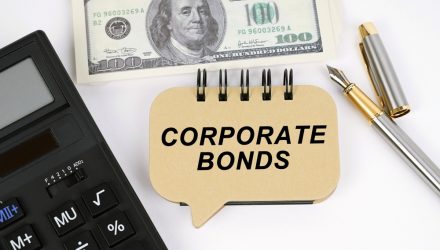One positive emerging from this year’s calamity in the bond market is that advisors and investors have plenty of options to consider when evaluating 2023 rebound ideas.
Some market observers believe investment-grade corporate bonds are among the fixed income assets that could bounce back next year, potentially opening the door to opportunities with a variety of exchange traded funds, including the SPDR Bloomberg SASB Corporate Bond ESG Select ETF (RBND).
RBND could be a relevant consideration for fixed income investors in 2023 for multiple reasons. First, the need for income remains high. If anything, soaring inflation has only amplified that scenario, meaning RBND’s 30-day SEC yield of 4.97% is attractive.
Second, assuming a recession arrives as many banks and economists believe will happen, high-yield corporate bonds could come under duress while investment-grade corporate debt could prove durable owing to reduced probability of ratings downgrades and defaults.
“With economic growth expected to slow and recession risk still high, we suggest investors focus on higher-rated investments,” wrote Collin Martin of Charles Schwab. “Rather than reach for yield in the lower-rated parts of the market, we’d rather focus on those with investment-grade ratings and the relatively high (often 5% or higher) yields they tend to offer. There may be better opportunities in 2023 within the riskier parts of the market—like sub-investment-grade, or ‘junk,’ bonds—but they are likely to see price declines before they get there, which would be painful for those holding these investments.”
Approximately half of RBND’s lineup sport ratings somewhere in “A” territory, confirming the portfolio has ample quality and that default is relatively low.
RBND’s quality perch is important for another reason. Corporate earnings growth is slowing, and that can be a drag on junk-rated issuers, some of which are already struggling to shed their money-losing ways. That’s a factor that cannot be ignored in a recession and one that could make investment-grade debt all the more attractive for income investors.
“If corporate profits remain stagnant or continue to decline, we believe high-yield issuers are more at risk than investment-grade issuers. High-yield issuers tend to have weaker balance sheets and more volatile cash flows, so when corporate profits slow, there’s little wiggle room for many issuers to remain current in servicing their liabilities. And as economic growth slows, the number of high-yield defaults should keep ticking higher,” concluded Schwab’s Martin.
For more news, information, and analysis, visit the ESG Channel.
The opinions and forecasts expressed herein are solely those of Tom Lydon, and may not actually come to pass. Information on this site should not be used or construed as an offer to sell, a solicitation of an offer to buy, or a recommendation for any product.

